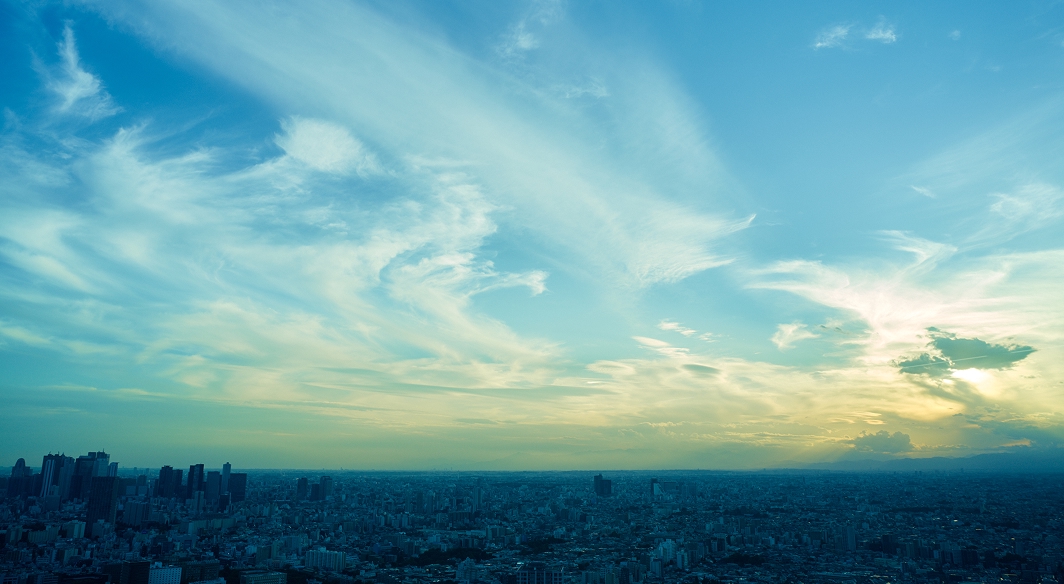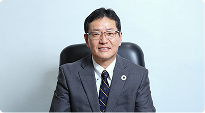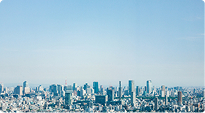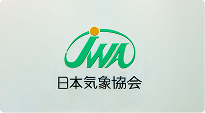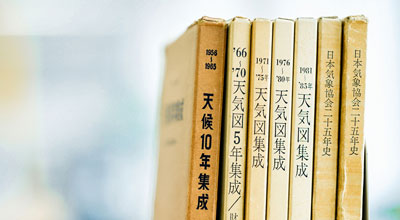

History
- 1950
-
-
Established in Tokyo as the first Weather Association, with permission granted from the then Minister of Transport.
-
- 1955
-
-
Obtained a license for “forecasting services” as defined in the Meteorological Service Act (permit No. 5).
Began weather forecasting services via telephone.
-
- 1963
-
-
Started weather forecasting and commentary services for NHK, Japan’s only public broadcaster.
-
- 1964
-
-
Started meteorological, hydrological, and environmental investigation and analysis services.
-
- 1966
-
-
Integrated all local Weather Associations, and changed the name to the Japan Weather Association (JWA).
-
- 1973
-
-
Launched proprietary weather forecasting services for highway operators.
-
- 1977
-
-
Started practical operation of MICOS, Japan’s first online weather information service.
-
- 1983
-
-
Received an award from the then Minister of Transport as a company contributing to the digital information society, in recognition of the contribution of MICOS to improving people’s lives through the provision of weather information.
-
- 1995
-
-
Launched local weather forecasting services based on the Certified Weather Forecasters System.
Launched disaster prevention and meteorological information services via the Internet.
-
- 1998
-
-
Started a study for tsunami inundation prediction and tsunami database development.
-
- 2000
-
-
Started mobile content provision services.
-
- 2007
-
-
Launched the practical operation of solar radiation prediction for solar power operators (Patent Nos. 5047245 and 5059073).
-
- 2008
-
-
Developed the SYNFOS-3D comprehensive numerical weather forecasting system (patent No. 5203104), which performs data assimilation of real-time information including GPS-PWV(precipitable water vapor) to the computation process, and launched actual services.
-
- 2009
-
-
Twitter followers of “tenki.jp” grew to over 100,000.
Transition to a general incorporated foundation with the approval of the Cabinet Office.
-
- 2011
-
-
Participated in a study to create a tsunami hazard map corresponding to multiple tsunami heights, which was conducted by the Cabinet Office after the Great East Japan Earthquake, and created an inundation prediction diagram corresponding to multiple tsunami heights.
Started service provision for JR East’s Train Channel digital signage system on trains, including the Yamanote Line.
-
- 2012
-
-
Became the first private weather company in Japan to introduce X-band MP radar.
-
- 2013
-
-
Released the AR app “Go-u [Heavy Rain] Detector” (patent pending, No. 2013- 090981), which displays real-time rainfall information by utilizing X-band MP radar observation data.
Established the Environmental Impact Assessment Section, which specializes in environmental consulting for wind power generation businesses.
Endowed the JWA Research Division for Meteorological and Hydrological Risk Information in the Disaster Prevention Research Institute, Kyoto University
-
- 2014
-
-
Established the Overseas Business Section, which promotes global business opportunities in JWA.
Launched a collaborated project with METI Japan “Reducing Food Loss and Saving Distribution- related Energy through Enhancing the Precision of Demand Forecasts”
-
- 2017
-
-
Launched a collaborated project with the State Hydrometeorological Service of the Republic of Moldova.
-
- 2019
-
-
Began providing “POLARIS”, a meteorological and oceanographic service for maritime industry.
-
- 2020
-
-
Launched “GoStop Management System,” a new service for logistics
-
- 2021
-
-
“Surplus Power Forecasting Service” received the New Energy Foundation Chairman’s Award at the New Energy Foundation in the FY2020 New Energy Award
Developed an automated detection technology for quasi-stationary band-shaped precipitation systems, named ‘senjo-kousuitai,’ which are known to cause severe rainfall
“GoStop Management System” received the 2021 Logistics Grand Prize
-
- 2022
-
-
Launched “Sakimiru,” an AI-based demand forecasting service for the retail and food service industries, utilizing human mobility and weather data
Released the “Heat Acclimatization Front” as part of the “Heatstroke Zero” project promoted by Japan Weather Association
Launched the “Weather Marketing Project“ to enhance quality of life and society through weather and to realize a sustainable society
-
- 2023
-
-
Developed the JWA Integrated Weather Forecast “JWA Blend of Models,”offering high-accuracy, high-frequency, and high-resolution weather forecasts
-
- 2024
-
-
Conducted a demonstration experiment under a project commissioned by the Ministry of Economy, Trade and Industry to promote logistics efficiency
Achieved improvement of factory and store performance through collaboration among multiple companies by sharing demand forecast data
Received the FY2024 Awards for Science and Technology by the Minister of Education, Culture, Sports, Science and Technology Award for Science and Technology, for the ”development of detection technology for quasi-stationary band-shaped precipitation systems, named ‘senjo-kousuitai’ ”
Launched ”biz tenki,” a weather forecast app for business users
Launched the ”2-Year Long-Term Weather Forecast,” the first technology in the weather industry
-
- 2025
-
-
Received the Grand Prize at the 2024 Nikkei Decarbonization Awards for the initiative “Power Supply-Demand Optimization and Decarbonization Enabled by the 2-Year Long-Term Weather Forecast”
Celebrated our 75th anniversary
-

